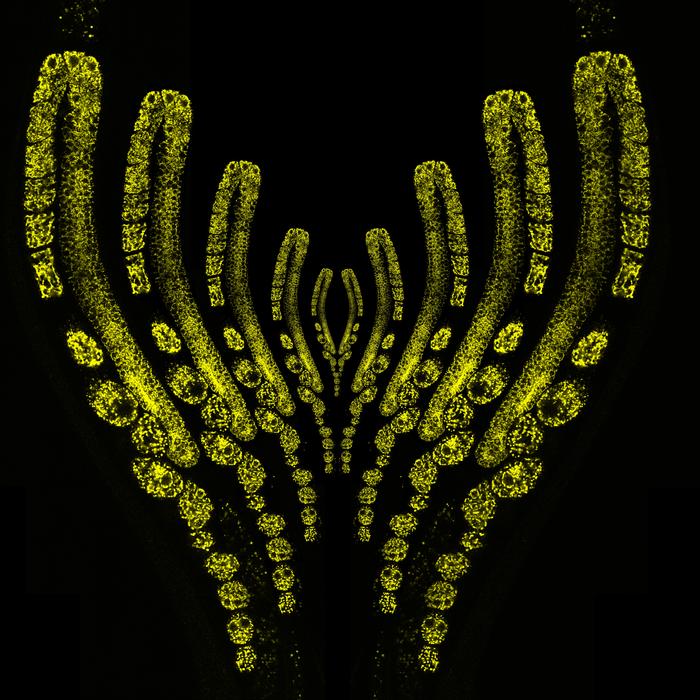How do you study reproductive aging, the biological clock that affects fertility, in the lab? Researchers at HHMI’s Janelia Research Campus use a surprising animal: the roundworm C. elegans.

Credit: Haining Zhang and Meng Wang / Developmental Cell
How do you study reproductive aging, the biological clock that affects fertility, in the lab? Researchers at HHMI’s Janelia Research Campus use a surprising animal: the roundworm C. elegans.
Although the tiny, transparent worms seem very different from humans, their reproductive lifespan is similar, encompassing one-third of their lives, making them a good model for Janelia Senior Group Leader Meng Wang and her team to investigate fertility and aging.
New research by the team used the roundworms to identify a mitochondrial enzyme that regulates reproductive health, a novel finding that could help scientists better understand human reproductive aging.
Mitochondria are the powerhouses of the cell. Healthy mitochondria are critical for reproduction, playing an important role in unfertilized eggs called oocytes. But exactly how mitochondria affect reproductive aging is not well understood.
Now, researchers show that a form of the enzyme Mitochondrial Succinyl-CoA Synthetase that produces GTP – a molecule important for cellular energy — increases in oocytes as they age. By reducing the amount of this enzyme, called GTP-specific SCS, the researchers showed animals could reproduce longer and the ability of older eggs to become fertilized increased.
The team found that mitochondria in oocytes cluster around the cell’s nucleus as the animal ages, a process controlled by GTP-specific SCS. Reducing the production of GTP prevents this clustering and increases the amount of time animals can reproduce – more than doubling the reproductive lifespan in C. elegans.
The researchers also discovered that age-associated changes in oocyte mitochondria are altered when exposed to different strains of E. coli bacteria. Vitamin B12 from these bacteria regulate GTP levels in mitochondria, affecting the clustering of the organelles around the nucleus and reproductive aging.
The new findings could help scientists better understand how reproductive aging is regulated in mammals, including humans, and how genetic and environmental factors affect how long women can reproduce and how healthy their pregnancies are.
Journal
Developmental Cell
DOI
10.1016/j.devcel.2023.08.019
Article Title
Mitochondrial GTP Metabolism Controls Reproductive Aging in C. elegans
Article Publication Date
13-Sep-2023




